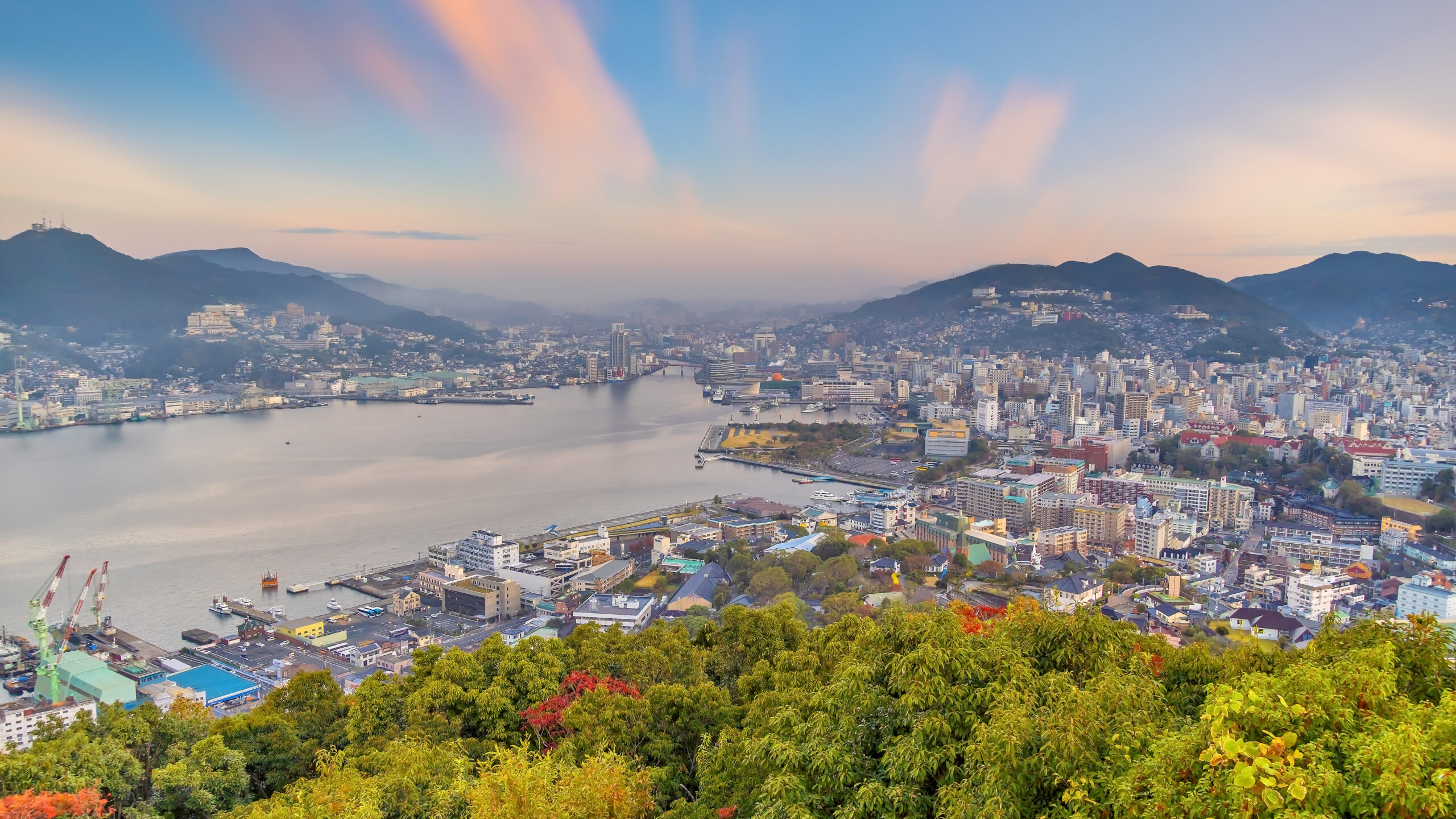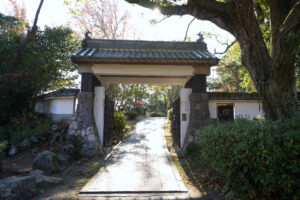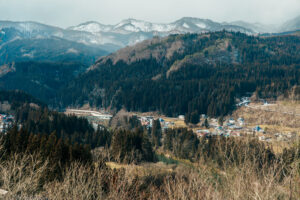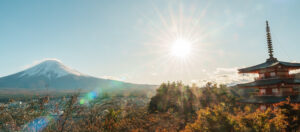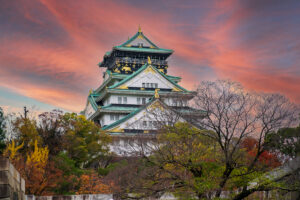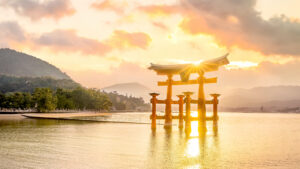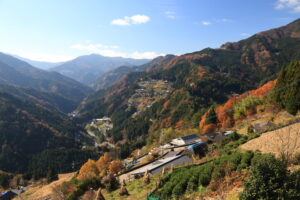Nestled in the southernmost part of Japan, Kyushu is a region that often remains overshadowed by its more famous counterparts like Tokyo and Kyoto. Yet, this island gem offers an extraordinary blend of rich history, stunning landscapes, vibrant culture, and tantalizing cuisine. From its majestic mountains and serene hot springs to its dynamic cities and quaint rural towns, Kyushu invites travelers to embark on an unforgettable journey. As we explore this enigmatic region, we unveil the charm and allure that make Kyushu a must-visit destination for any discerning traveler.
Unveiling Kyushu: Japan’s Southern Gem Awaits Exploration
Kyushu holds a unique position within Japan, both geographically and culturally. With its diverse topography ranging from volcanic mountains to lush valleys, Kyushu is a microcosm of what Japan has to offer. It is home to several active volcanoes, including the iconic Mount Aso, which boasts one of the world’s largest volcanic calderas. The island also serves as a gateway to the Ryukyu Islands, adding to its cultural richness and diversity.
Despite its lesser-known status, Kyushu is steeped in history that dates back thousands of years. It has been a melting pot of various cultures, influenced by trade routes that connected it to mainland Asia. This storied past is reflected in the region’s architecture, local traditions, and even its dialects, which vary significantly from those of other parts of Japan.
Visitors to Kyushu will find that the island is dotted with charming towns and cities, each with its own distinct personality. From the bustling streets of Fukuoka, the region’s largest city, to the tranquil, historical town of Kumamoto, there is much to discover. Moreover, the warm hospitality of the locals adds to the inviting atmosphere, making travelers feel right at home.
For those seeking adventure, Kyushu offers numerous opportunities for exploration. Whether hiking through lush national parks or soaking in natural hot springs, the island caters to a wide range of interests. The region’s moderate climate allows for year-round exploration, making it an enticing destination regardless of the season.
As travelers venture deeper into Kyushu, they will uncover hidden gems that showcase the island’s beauty and allure. From pristine beaches to ancient temples, every corner of Kyushu has a story waiting to be told. This rich tapestry of experiences makes exploring Kyushu a rewarding undertaking, encouraging visitors to step off the beaten path and discover the region’s true essence.
In summary, Kyushu is a treasure trove of experiences just waiting to be unveiled. Its captivating landscapes, rich history, and vibrant culture provide a kaleidoscope of adventures for every type of traveler. As we journey through Kyushu, we delve into its myriad offerings, showcasing the best that this southern gem has to offer.
A Journey Through Kyushu: Culture, Nature, and Adventure
As we embark on our journey through Kyushu, we are immediately struck by the region’s cultural richness. The unique fusion of indigenous traditions and influences from China and the Korean Peninsula creates a vibrant tapestry of customs, art forms, and festivals. Notably, the region is known for its traditional crafts, such as pottery and textiles, many of which have been preserved for generations.
In addition to its cultural heritage, Kyushu is blessed with breathtaking natural beauty. The island is home to several national parks, including the scenic Kirishima-Yaku National Park, which showcases stunning volcanic landscapes, hiking trails, and lush forests. These parks not only provide opportunities for outdoor activities but also serve as a sanctuary for diverse flora and fauna.
Adventure awaits at every turn in Kyushu. For thrill-seekers, activities such as rock climbing, river rafting, and zip-lining offer exhilarating experiences amidst the island’s stunning landscapes. The region’s unique geological features also present opportunities for spelunking and canyoning, making it a true playground for outdoor enthusiasts.
In addition to its natural wonders, Kyushu boasts modern attractions that reflect its dynamic spirit. Museums, art galleries, and theaters celebrate the region’s artistic endeavors and innovations. The Fukuoka Asian Art Museum, for example, highlights the artistic connections between Kyushu and its neighboring Asian countries, showcasing contemporary works that spark dialogue and understanding.
Cultural experiences abound, too, from traditional tea ceremonies to sumo wrestling events. Participating in these activities allows travelers to immerse themselves in Kyushu’s rich cultural fabric, gaining insights into the local way of life and customs. Moreover, the region’s festivals, often steeped in tradition, provide a lively backdrop for celebrating the seasons and local deities.
As our journey through Kyushu unfolds, we find ourselves captivated by the harmonious blend of culture, nature, and adventure. The region’s diverse offerings make it an ideal destination for those seeking to explore the heart and soul of Japan, revealing layers of experiences that resonate long after the journey ends.
Historical Insights: Kyushu’s Rich and Diverse Heritage
Kyushu’s historical significance is profound, serving as a focal point for the cultural and political developments of Japan over the centuries. The island was the first point of contact between Japan and the Asian continent, making it a hub for trade and cultural exchange. This rich history is evident in the ruins of ancient capitals, such as Dazaifu, which played a crucial role in sustaining maritime trade routes.
The influence of the samurai era is also palpable in Kyushu. The region was home to powerful clans, such as the Shimazu of Satsuma and the Kuroda of Fukuoka, whose legacies can still be seen in the region’s castles and historical sites. Kumamoto Castle, with its imposing architecture and strategic design, stands as a testament to the region’s feudal past and offers visitors a glimpse into the life of the samurai.
Moreover, Kyushu’s role in Japan’s modernization during the Meiji Restoration is significant. The region became a center for military and industrial development, with cities like Nagasaki emerging as key players in international trade. The historic Glover Garden in Nagasaki showcases the influence of foreign merchants and their contributions to the city’s development.
Kyushu is also home to many sacred sites that reflect Japan’s spiritual heritage. The island is dotted with Shinto shrines and Buddhist temples, some dating back over a thousand years. The Dazaifu Tenmangu Shrine, dedicated to the deity of learning, attracts thousands of visitors each year, especially students seeking academic success.
In exploring Kyushu’s heritage, travelers can also learn about the indigenous Ainu culture, which has contributed to Japan’s diverse cultural landscape. While the Ainu are more commonly associated with Hokkaido, their historical presence in Kyushu is a reminder of the island’s multi-faceted identity and the rich tapestry of influences that have shaped its development.
In conclusion, Kyushu’s rich and diverse heritage offers a compelling narrative that enriches the travel experience. Through its historical sites, cultural practices, and spiritual traditions, the island invites visitors to delve deeper into the layers of its past, providing context and meaning to the modern-day landscape of this captivating region.
Culinary Delights: Savoring Kyushu’s Unique Flavors
Kyushu’s culinary scene is a vibrant showcase of flavors, ingredients, and cooking styles that reflect the region’s rich agricultural bounty and cultural diversity. Renowned for its fresh seafood, Kyushu’s coastal cities, like Fukuoka and Nagasaki, serve up delectable dishes featuring the catch of the day. From grilled fish to sashimi, the emphasis on freshness and quality is a hallmark of Kyushu’s gastronomy.
One of the most celebrated dishes in Kyushu is tonkotsu ramen, a rich and creamy pork bone broth that has taken the culinary world by storm. Originating in Fukuoka, this beloved noodle dish is characterized by its savory flavor and melt-in-your-mouth texture. Each ramen shop offers its own unique spin on this classic dish, making it a must-try for any visitor.
Kyushu is also famous for its high-quality beef, particularly the renowned Kobe and Kumamoto beef. Raised in the region’s lush pastures, these cattle are known for their marbled texture and rich flavor. Dining experiences often include yakiniku, or grilled meat, where diners can savor the sumptuous taste of this premium beef cooked to perfection.
In addition to its savory dishes, Kyushu boasts a flourishing dessert scene. Traditional sweets, known as wagashi, are often enjoyed with tea and reflect the seasonality of ingredients. For instance, the region is famous for its yakiimo, or roasted sweet potatoes, which are a popular snack during the cooler months.
Moreover, Kyushu’s agricultural landscape produces an array of local specialties, from citrus fruits to sake. The region’s sake breweries, particularly in the Kumamoto and Fukuoka prefectures, produce high-quality rice wines that embody the craftsmanship and traditions of Japanese brewing.
As travelers indulge in Kyushu’s culinary delights, they not only satisfy their taste buds but also connect with the region’s culture and heritage. Each dish tells a story, inviting diners to explore the flavors and ingredients that make Kyushu a gastronomic paradise.
Natural Wonders: Discovering Kyushu’s Breathtaking Landscapes
Kyushu’s natural wonders are a testament to the island’s geological diversity, with a stunning array of landscapes that captivate the senses. The region’s volcanic activity has shaped its topography, resulting in breathtaking views and unique geological formations. Mount Aso, one of Japan’s most active volcanoes, offers an awe-inspiring sight with its vast caldera and dramatic crater.
In addition to its volcanic landscapes, Kyushu is adorned with lush forests, cascading waterfalls, and picturesque coastlines. The Yakushima Island, a UNESCO World Heritage Site, is famous for its ancient cedar trees and rich biodiversity. Hiking through the verdant trails of Yakushima, visitors can immerse themselves in a world of natural beauty, where towering trees and serene streams create a tranquil escape.
The island’s coastline is equally stunning, offering pristine beaches and dramatic cliffs. The Amakusa Islands, known for their crystal-clear waters and rich marine life, are a paradise for snorkeling and diving enthusiasts. Here, visitors can explore vibrant coral reefs and encounter an array of sea creatures, making it a haven for underwater adventures.
Kyushu’s national parks further showcase the region’s natural beauty. Kirishima-Yaku National Park, with its volcanic peaks and alpine flora, is a popular destination for hikers and nature lovers. The park’s trails lead to breathtaking viewpoints, hot springs, and serene lakes, providing an immersive experience in Kyushu’s diverse ecosystems.
In addition to its landscapes, Kyushu’s climate contributes to its natural appeal. The region enjoys a temperate climate, with mild winters and warm summers, making it suitable for year-round exploration. Each season brings its own charm, from cherry blossoms in spring to vibrant autumn foliage, ensuring that nature enthusiasts will find beauty at any time of year.
As travelers journey through Kyushu’s natural wonders, they are reminded of the island’s rugged beauty and the importance of preserving its ecosystems. The interplay of volcanic landscapes, lush forests, and coastal vistas creates a captivating backdrop that invites exploration and appreciation of nature’s splendor.
Hot Springs and Relaxation: Kyushu’s Soothing Onsen Culture
Kyushu is renowned for its onsen (hot springs), making it a premier destination for relaxation and rejuvenation. The region’s volcanic activity has created a wealth of natural hot springs that are rich in minerals, offering therapeutic benefits for both body and mind. With over 3,000 onsen scattered throughout Kyushu, visitors have no shortage of opportunities to unwind in these soothing waters.
The town of Beppu, often referred to as the "onsen capital" of Japan, is home to a multitude of hot spring baths, each with its own unique characteristics. From mud baths to steam baths, Beppu offers a diverse range of experiences that cater to every preference. Visitors can also explore the famous "Hells of Beppu," a collection of stunning hot spring sites that are more for viewing than bathing.
Kusatsu Onsen, located in the mountains of Kumamoto Prefecture, is another popular destination known for its high-quality sulfuric waters. The charming atmosphere of this idyllic town, with its traditional ryokan (inns) and scenic surroundings, invites guests to relax and indulge in the healing properties of the hot springs.
In addition to Beppu and Kusatsu, other towns like Yufuin and Unzen offer their own unique onsen experiences. Yufuin, set against a picturesque backdrop of mountains, features outdoor baths that allow guests to soak while taking in the stunning scenery. Unzen, a historic hot spring resort, combines relaxation with a touch of history, as it was once frequented by foreign visitors during the Meiji Era.
The onsen culture in Kyushu is deeply ingrained in the local way of life. Many ryokan offer traditional kaiseki meals, giving guests the opportunity to savor the region’s culinary delights while enjoying the serene ambiance. The experience of soaking in a hot spring after a day of exploration provides the perfect way to unwind and reflect on the day’s adventures.
As travelers immerse themselves in Kyushu’s onsen culture, they discover a deep connection between relaxation and nature. The soothing waters and tranquil surroundings create an oasis of calm, inviting visitors to recharge and rejuvenate in one of the most serene settings imaginable.
Festivals and Traditions: Celebrating Kyushu’s Vibrant Spirit
Throughout the year, Kyushu comes alive with a myriad of festivals that showcase the region’s rich cultural heritage and vibrant spirit. These celebrations, known as matsuri, are deeply rooted in local traditions and reflect the collective identity of the communities. From colorful parades to spirited dances, each festival offers visitors a unique glimpse into Kyushu’s cultural landscape.
One of the most famous festivals is the Hakata Gion Yamakasa in Fukuoka, celebrated every July. This lively event features elaborately decorated floats that are carried through the streets by teams of spirited participants. The excitement builds as teams race against each other, showcasing their strength and teamwork, while local residents cheer them on. The festival culminates in a grand display of fireworks, marking the end of the festivities.
In Kumamoto, the Tsuetate Onsen Fire Festival is a dazzling spectacle held every August. This event combines traditional fire rituals with modern entertainment, creating a dynamic atmosphere that captivates attendees. Participants don traditional attire, and the festival features stunning fire displays, performances, and traditional music, inviting visitors to immerse themselves in the local culture.
The Nagasaki Kunchi Festival, held in October, is another highlight of Kyushu’s vibrant festival calendar. This celebration is a fusion of Japanese and Chinese influences, featuring intricate floats, traditional dances, and a display of culinary delights. The festival’s roots date back to the 17th century, making it a cherished event that reflects Nagasaki’s multicultural history.
In addition to these larger festivals, many towns in Kyushu host seasonal celebrations that highlight local traditions. Harvest festivals, for example, showcase the region’s agricultural bounty, with food stalls and cultural performances that bring communities together to celebrate the fruits of their labor.
Experiencing these festivals provides travelers with an opportunity to connect with the local community and gain insights into their customs and beliefs. The joyous atmosphere, marked by laughter, music, and dance, creates an unforgettable experience that leaves a lasting impression.
As Kyushu’s festivals unfold, they reveal a vibrant tapestry of traditions, inviting visitors to celebrate alongside locals and partake in the rich cultural heritage of this southern gem. Each event serves as a reminder of the importance of community, resilience, and the joy of coming together in celebration.
Urban Life: Navigating Kyushu’s Dynamic Cities and Towns
Kyushu’s urban landscape is a fascinating blend of modernity and tradition, with each city and town offering its own unique character and charm. Fukuoka, the largest city in Kyushu, serves as a bustling metropolis that showcases the region’s dynamic spirit. Known for its vibrant food scene, shopping districts, and cultural attractions, Fukuoka is a hub of activity that draws both locals and visitors alike.
The city’s iconic landmarks, such as the Fukuoka Tower and Ohori Park, provide visitors with a glimpse into contemporary urban life while honoring the beauty of nature. Fukuoka is also home to several museums, including the Fukuoka Asian Art Museum, which highlights the city’s connections to its Asian neighbors through art and culture.
Traveling south, Kumamoto offers a different experience with its historic charm and rich heritage. The majestic Kumamoto Castle, with its impressive architecture and tranquil gardens, stands as a symbol of the city’s resilience and history. The area surrounding the castle is filled with quaint shops and cafes, providing a perfect blend of urban convenience and historical allure.
Nagasaki, with its unique blend of Japanese and Western influences, tells a compelling story of its past as an international trading port. The city’s stunning harbor views, alongside historic sites like the Glover Garden and Oura Church, offer visitors a chance to explore the legacy of foreign interactions during the Edo period. The vibrant street life, marked by charming shops and eateries, adds to Nagasaki’s appeal.
In contrast, the smaller towns of Kyushu, such as Yufuin and Beppu, exude a more laid-back atmosphere. Yufuin, nestled in a picturesque valley, is known for its art galleries, local crafts, and scenic views of Mount Yufu. The quaint streets, lined with charming ryokan and cafes, invite visitors to relax and enjoy the serene surroundings.
Beppu, on the other hand, is a bustling onsen town that captures the essence of relaxation and rejuvenation. The town’s vibrant street markets and lively atmosphere provide a taste of local life, while the numerous hot springs invite visitors to unwind. The coexistence of urban life and natural beauty makes Beppu a captivating destination.
As travelers navigate Kyushu’s cities and towns, they encounter a rich tapestry of experiences that highlight the region’s dynamic urban landscape. The interplay of modernity and tradition creates a unique atmosphere that invites exploration, offering a glimpse into the heart and soul of Kyushu.
Outdoor Activities: Embracing Adventure in Kyushu’s Nature
Kyushu is a paradise for outdoor enthusiasts, offering a wide range of activities that embrace the region’s stunning natural landscapes. From majestic mountains and lush forests to pristine coastlines, the island provides a playground for adventure seekers seeking to connect with nature. Whether hiking, cycling, or engaging in water sports, Kyushu has something for everyone.
One of the most popular outdoor activities is hiking, with numerous trails that wind through the region’s national parks and scenic landscapes. Mount Aso, with its breathtaking views and diverse ecosystems, offers hikers a chance to explore the area’s unique geology while enjoying panoramic vistas. The trails range from leisurely strolls to challenging climbs, catering to all levels of experience.
For those who prefer water-based activities, Kyushu’s coastline provides opportunities for swimming, surfing, and kayaking. The Amakusa Islands, with their crystal-clear waters and vibrant marine life, are particularly popular for snorkeling and diving. Adventurers can explore underwater ecosystems teeming with colorful fish and coral reefs, creating unforgettable memories in the ocean.
Cycling enthusiasts will also find ample opportunities to explore Kyushu on two wheels. The island’s relatively flat terrain and scenic routes make it ideal for leisurely rides through charming towns and rural landscapes. The Shimanami Kaido, a scenic cycling route connecting Honshu and Shikoku, offers breathtaking views of the Seto Inland Sea and picturesque islands along the way.
In addition to traditional outdoor activities, Kyushu’s unique geological features provide exciting opportunities for rock climbing and canyoning. Areas like Takachiho Gorge, with its stunning cliffs and crystal-clear waters, are popular spots for adventure seekers looking to explore the region’s natural beauty from a different perspective.
As travelers embrace adventure in Kyushu’s nature, they are reminded of the island’s rugged beauty and the importance of preserving its ecosystems. The chance to connect with the great outdoors fosters a sense of appreciation for the environment and encourages sustainable practices for future generations.
In conclusion, Kyushu’s outdoor activities
